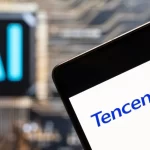The impact of AI on the employment landscape is multifaceted and depends on various factors, including the pace of AI development, societal adaptation, and government policies. Here are some potential changes:
Careers at Risk:
- Routine and Repetitive Jobs: AI excels at performing routine and repetitive tasks. Jobs in manufacturing, data entry, and basic customer service are vulnerable.
- Driving Jobs: With the rise of autonomous vehicles, traditional driving jobs like truck drivers and taxi drivers may face challenges.
- Basic Healthcare Tasks: AI applications in healthcare could automate certain diagnostic and administrative tasks, affecting roles like medical transcriptionists.
- Manufacturing and Assembly Line Jobs: Robots and automated systems are increasingly taking over tasks on assembly lines.
Careers Emerging or Evolving:
- AI and Machine Learning Specialists: Demand for professionals who can develop, implement, and maintain AI systems is likely to rise.
- Data Scientists and Analysts: As AI relies on vast amounts of data, experts who can interpret and analyze this data will be in high demand.
- Robotics Engineers: With increased use of robots, experts in designing, building, and maintaining them will be essential.
- AI Ethics and Bias Experts: As AI systems become more prevalent, there will be a need for professionals who can ensure ethical use and minimize biases in AI algorithms.
- Augmented Reality (AR) and Virtual Reality (VR) Developers: These technologies have applications in gaming, education, healthcare, and more.
- Human-Machine Teaming Specialists: People who can facilitate effective collaboration between humans and AI systems.
- Cybersecurity Experts: The more we rely on AI, the more critical it becomes to secure these systems against potential threats.
Shift in Job Requirements:
- Soft Skills: Jobs that require uniquely human skills like creativity, emotional intelligence, and critical thinking will become more valuable.
- Adaptability: Given the rapid evolution of technology, being able to adapt to new tools and processes will be crucial.
- Continuous Learning: Lifelong learning will be essential to keep up with technological advancements.
- Interdisciplinary Skills: Jobs may require a combination of technical expertise and domain-specific knowledge.
- Human Oversight: Many AI systems will still require human oversight to ensure ethical use and intervene in complex situations.
It’s important to note that while some jobs may disappear, new ones will emerge. Additionally, the transformation will vary across industries and regions. Preparing for this shift involves a focus on education, upskilling, and adapting to the evolving nature of work.
Shayne Heffernan









